Our Wife

Brief Synopsis
Cast & Crew
John M. Stahl
Melvyn Douglas
Ruth Hussey
Ellen Drew
Charles Coburn
John Hubbard
Film Details
Technical Specs

Synopsis
While on a Carribean cruise, Susan Drake, her brother Tom, and her father, who possess a total of nine college degrees and three professorships among them, meet musician Jerry Marvin when a drunken Jerry tries to drown his sorrows by jumping in the drink. Later that night, Jerry's trumpet playing disturbs Susan's concentration, and she knocks on his door to complain. Susan, who finds romance in science, has no patience with the self-pitying Jerry, who drinks to console himself over a broken marriage. The next day, the passengers disembark at the port of Cristobal in the Panama Canal Zone. After a day spent ashore, the Drakes hear the ship's whistle blow, signaling its imminent departure. When Jerry drunkenly stumbles past, they think that he is lost and escort him back to the ship. Upon discovering that Jerry's cabin is occupied, the Drakes learn that he intended to leave the boat at Cristobal. After Jerry passes out, the Drakes take him to their suite, and when he awakens the next day, he exclaims that he has been abducted. To make amends for their error, the Drakes insist that Jerry share their suite because there are no vacant cabins. By the time the ship docks in Havana, Jerry has grown fond of the family and invites them to summer at his house in Long Island while he works in Cristobal. After giving Susan his keys and address, Jerry leaves them to board a plane to Cristobal. When the Drakes arrive at the house, however, they find a sober Jerry practicing his trumpet. After explaining that he has stopped drinking and is writing a concerto, Jerry asks the family to stay and lend him moral support. Six weeks later, Jerry debuts his concert at Philharmonic Hall. Susan, who has been refused admission to the performance because of her late arrival, meets Jerry's estranged wife Babe in the lobby. Feeling threatened by the coquettish Babe, Susan refuses to go backstage to congratulate Jerry on his success and returns home instead. As Susan eagerly awaits Jerry, Babe drives up and sends the family to bed. Babe then seductively arranges herself on the couch, and when Jerry appears, she purrs that she wants a reconciliation. After Jerry curtly rejects Babe's offer, he goes upstairs and asks Susan to join them. Jerry then proposes to Susan in front of Babe, who concedes defeat and asks his permission to retrieve some of her personal belongings from upstairs. Susan thinks that Jerry's proposal was just a ploy to get rid of Babe until he proposes again and kisses her. After witnessing their embrace, Babe pretends to fall down the stairs. Diagnosed as suffering from hysterical paralysis, Babe begs Jerry to let her stay at his house. Susan decides that, for the sake of propriety, she and her family must leave the house until she walks into Babe's room to retrieve a nightgown and sees Babe applying makeup that had previously been sitting on the dresser. Realizing that Babe is faking paralysis to win Jerry back, Susan determines to expose her ruse. First, Susan moves the table that contains the buzzer that Babe uses to summon her maid, Hattie, out of reach, but Babe outwits her by using a pole to ring the buzzer. Next, Susan decides to get Susan drunk and trick her into walking. The cunning Babe outsmarts Susan by plying her with champagne, however, and when Jerry returns, he finds a drunken Susan coaxing Babe to walk. Awakening the next morning with a hangover, Susan learns that Babe has manipulated Jerry into taking her to the Georgia Hot Springs for a cure. Summoning Susan to her room, Babe begins to taunt Susan with her victory. Storming out of the room, Susan seeks refuge in her laboratory and, while angrily pacing there, overturns a burner and sets the house on fire. When Susan runs upstairs to tell Babe that the house is in flames, Babe thinks it is another trick and refuses to get out of bed. Just then, Jerry runs up the stairs, carries Babe out of the house and sets her in a lawn chair in the garden. Faced with defeat, Susan is about to leave when a fire hose sprays Babe with water, causing her to jump out of the chair. Infuriated by her deception, Jerry turns Babe over his knee and begins to spank her and Susan joins in the fun.

Director

John M. Stahl
Cast

Melvyn Douglas

Ruth Hussey
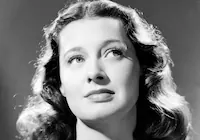
Ellen Drew

Charles Coburn

John Hubbard
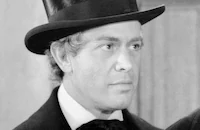
Harvey Stephens
Theresa Harris
Barbara Brown
Charles Hamilton
Craufurd Kent

Addison Richards
Isabel Withers

Andre Beranger
John Merton

George Mckay
Roland Varno
John Holland
Juan Varro
Pedro Regas
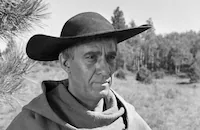
Martin Garralaga
Thornton Edwards
Paul Lopez
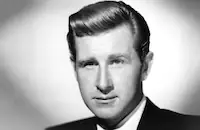
Lloyd Bridges
Edward Fielding

Irving Bacon
Lloyd Whitlock
Hooper Atchley
Frank Yaconelli

Lawrence Grant
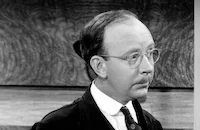
Hobart Cavanaugh
Paul Mcvey
Forbes Murray

Grace Darmond
Betty Blythe
Bob Benston Evans
Crew
Dave Allen
Lionel Banks
Ridgeway Callow
Gene Havlick
Franz F. Planer
Henry Sharp
Leo Shuken
Leo Shuken
John M. Stahl
Irving Starr
Rudolph Sternad
M. W. Stoloff
P. J. Wolfson

Film Details
Technical Specs

Articles
Ellen Drew, 1914-2003
She was born Esther Loretta "Terry" Ray on November 23, 1914, in Kansas City, Missouri. The daughter of a barber, her family moved to Chicago when she was still an infant and she lived a very quiet childhood far removed from the glamour of Hollywood. She was encouraged by some friends to enter a beauty contest when she was just 17. After winning, she tried her luck in Hollywood, but found that they were no immediate offers for her particular talents.
She eventually took a waitressing job at C.C. Brown's, a famed Hollywood Boulevard soda fountain, and had virtually abandoned her dreams as a starlet when William Demarest, a popular actor's agent and well-known character actor, spotted her. Demarest arranged a screen test for her at Paramount, and she was promptly placed under contract for $50 a week.
For the first few years, (1936-38), Drew got only bit parts, and was often uncredited. When she finally got prominent billing in the Bing Crosby musical Sing You Sinners (1938), she decided to change her name, from Terry Ray to Ellen Drew. She earned her first major role in Frank Lloyd's If I Were King (1938) opposite Ronald Colman, yet for the most part of her career, rarely rose above "B" material and second leads. Still, she had some fine exceptions: Preston Sturges' enchanting comedy Christmas in July (1940), with Dick Powell; Tay Garnett's lighthearted war romp My Favorite Spy (1942) co-starring Kay Kyser; Julien Duvivier's taut The Imposter (1944), holding her own with a brooding Jean Gabin; and Mark Robson's chilling low-budget chiller Isle of the Dead (1945) opposite Boris Karloff. Drew made some notable television appearances in the late '50s including Perry Mason and The Barbara Stanwyck Show, before retiring from the entertainment industry. She is survived by her son David; five grandchildren; and five great-grandchildren.
by Michael T. Toole

Ellen Drew, 1914-2003
Quotes
Trivia
Notes
New items in Hollywood Reporter offer the following information about the production of this film: Columbia purchased the rights to the Lillian Day and Lyon Mearson play in 1937. In September 1938, the studio announced that Cary Grant and Jean Arthur would star in the project, which was to be scripted by Sidney Buchman and produced by Everett Riskin. The production files for the film in the AMPAS Library actually contain an advertisement for the film that features color drawings of Grant and Arthur as its stars. By February 1939, the studio announced that Mitchell Leisen would direct the feature, which was now to star Grant and Loretta Young. In March 1941, Ruth Hussey replaced Rita Hayworth in the role of "Susan Drake" when Hayworth was re-assigned to appear in You'll Never Get Rich (see below). A scheduling conflict also forced Louise Beavers to withdraw from the part of "Hattie." This was John Stahl's only production for Columbia. Ellen Drew was borrowed from Paramount and Ruth Hussey from M-G-M to star in the picture.















